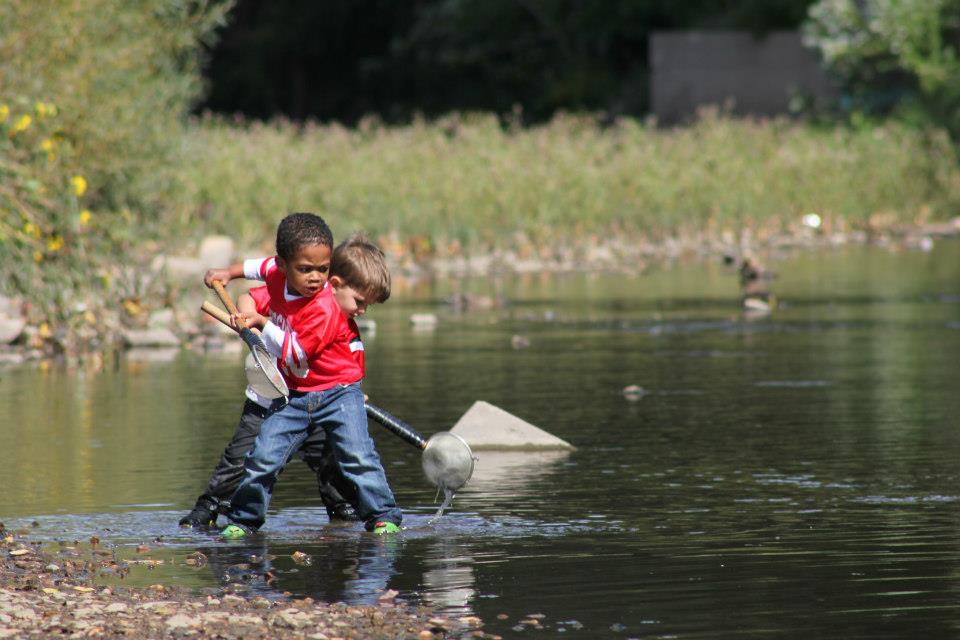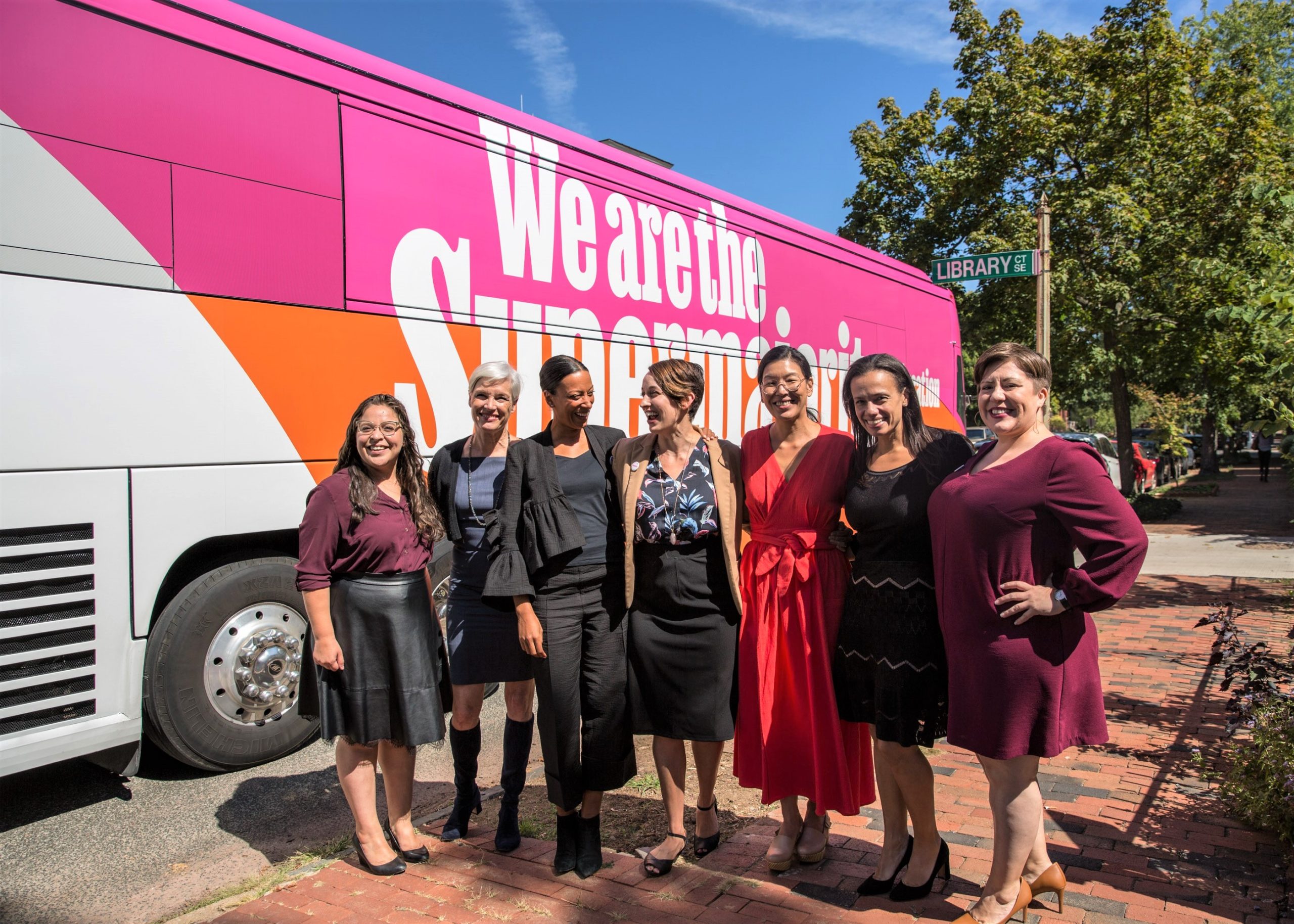Water has always been at the center of the environmental movement, and for good reason. It’s universal and essential—the source of life on Earth. But for decades, the movement of those dedicated to protecting this invaluable resource has not fully reflected the diversity of people affected by it.
Structural inequities, not lack of interest, have been to blame for this disparity. Communities of all backgrounds are passionate about stewarding our natural resources. But traditional and exclusionary power structures have made the traditional environmental movement a largely white space since its foundation.
Fortunately, that trend is changing, thanks in part to initiatives like those underway at the Fund for Lake Michigan.
One of the longest-running fiscally sponsored projects at the New Venture Fund, the Fund for Lake Michigan has been working to sustain Lake Michigan on behalf of the people and places that depend on it for more than a decade. Since its inception, the fund has made 600 grants totaling more than $36 million to local groups, nonprofit partners, and government agencies. It promotes partnerships among the many players in southeastern Wisconsin and the Lake Michigan basin, and it leverages public and private investments from other key Lake Michigan donors.
With the New Venture Fund providing critical back-office support including staffing, benefits management, and HR services, the Fund for Lake Michigan has been able to focus its efforts on its programmatic work, and the results have been striking. The fund has supported a green-infrastructure revolution, with innovative stormwater-management projects popping up in school and college campuses, community centers and gardens, local businesses, and public parks. It has also invested nearly $4 million in education and research to help prepare the next generation of water stewards to lead—not just locally, but globally.
Building on its successes over the past decade, the fund has now set its sights on dismantling the structural barriers that prevent the environmental movement from better representing the communities most affected by its work.
Opportunities for Young People
“People from diverse backgrounds are engaged in environmental work all across the country,” says Vicki Elkin, executive director of the Fund for Lake Michigan. “But what people normally think of as the traditional environmental movement does not reflect that diversity.” In recent years, the fund has taken more active steps to incorporate the viewpoints and skill sets of marginalized communities—especially youth—into its critical work.
One example of this work in action is the fund’s partnership with Public Allies Milwaukee, which began in 2020. Public Allies is a national movement funded by AmeriCorps that is committed to advancing social justice and equity by engaging and activating the leadership of young people. It supports promising, underrepresented young adults who might not normally have a pathway to public service by connecting these young talents with placements in nonprofit organizations and public agencies.
The Fund for Lake Michigan partnered with Public Allies to sponsor 11 young adults at the fund’s grantee organizations. They also hosted an educational series for Public Allies on environmental issues.
To ensure that this work has a long-lasting effort, the fund asked each host organization to attend racial equity training, encouraging them to move their own equity-focused work forward alongside and in addition to hosting young adults from underrepresented communities.
Giving Water Issues New Relevance
The partnership between the Fund for Lake Michigan and Public Allies has been a decided success. Of the 11 young adults who participated in the first year of this partnership four have gone on to secure permanent positions with their host organizations.
“When we partner with grantee organizations, we’re always looking for projects that have multiple community benefits,” says Elkin, “and that includes projects that help environmental organizations become more reflective of the community itself.”
By supporting young people who might otherwise face structural barriers to entering the environmental movement, the fund is moving environmentalism in a more inclusive and promising direction, while simultaneously making education about water and the environment more relevant to younger audiences.
In one such project, the Fund for Lake Michigan sponsored four Public Allies who worked to integrate perspectives from Black, Native American, and Latinx communities into a new walking tour of Milwaukee’s rivers. This less-academic approach is designed to attract a broader audience to issues of water quality and conservation.
“Milwaukee is one of the most segregated cities in America,” says Elkin. “If we want to show diverse young people that environmental work is relevant to them, we have to invite them to share their own perspectives and experiences.”
These four Public Allies will publish a website later this year that makes their interactive walking tour accessible to the general public. The website will feature video interviews with people who have close ties to the region, as well as historic research and photos. This content will provide a valuable bridge to Milwaukee’s young people, helping to make their city’s rivers feel more relevant to their lives.
What’s Next for the Movement
As the Fund for Lake Michigan looks to the future, its dedication to protecting its namesake lake will not waver, nor will its commitment to advancing a more diverse and inclusive environmental movement. But there is one looming crisis the fund has its eyes on, and it’s one that everyone around the world must come together to address: climate change.
“Our communities in Wisconsin are on the front lines of climate change in terms of flooding,” says Elkin. “We’re at a crisis point, and people want to know what they can do.”
Indeed, Elkin says she is hearing regularly from communities all across the region with concerns about climate change—regardless of the political affiliations of those regions, or whether they have been actively involved in water issues before.
Responding to this sense of urgency, the Fund for Lake Michigan is launching a new project directly focused on climate resilience. What’s more, it is building issues of racial equity into the foundations of its climate work, because communities of color around the world face disproportionate consequences of advancing climate change.
“Water touches everyone,” says Elkin, “and for a crisis of this magnitude, we need everyone to be part of the solution.”
According to the fund, the time to take a stand against this crisis is now or never.



